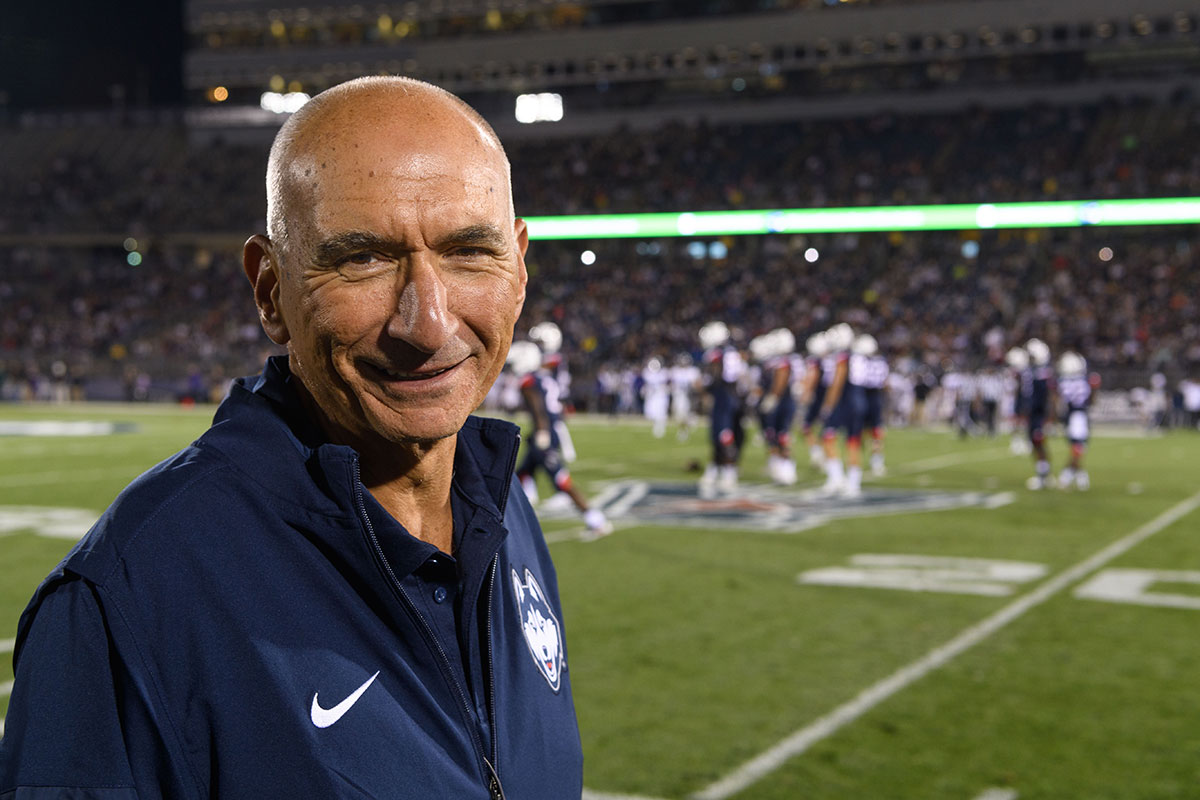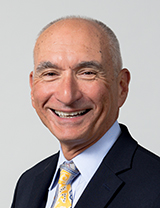
Whether an athlete suffers a traumatic brain injury (TBI) or a persistent neurologic condition, he or she can turn to UConn NeuroSport for diagnosis, treatment, and rehabilitation. Located in downtown Storrs and part of UConn Health Orthopedics and Sports Medicine, NeuroSport enlists multiple specialties to deliver personalized care. Dr. Anthony Alessi, a neurologist who specializes in sports medicine and neuromuscular disease, is the director of UConn NeuroSport.

What kinds of conditions do you see at UConn NeuroSport?
Although everyone is focused so much on concussion and head injuries, and rightfully so, we also take care of athletes with other neurologic injuries, like migraine headaches, epilepsy, and multiple sclerosis. We’re not limited to high-velocity contact sports. Other athletes – runners, non-contact sports athletes, any of those who they feel have a neurologic problem, whether it be acute or chronic – we’re happy to see, even if it’s just to give them a second opinion. Or people who are getting symptoms, as they’re running they’re starting to develop neurologic symptoms, we’re happy to see them.
Who are your candidates for care?
We see all ages, including high school and younger, from throughout the region, including other states. We have elite athletes who fly in and stay at the hotel out here, at the Nathan Hale Inn, and will stay for several days. We put them through the regime based on what we see and who they’re going to see next in the same day. If we need imaging we get that done quickly – we’re now able to do MRI imaging here. We have everything right here in Storrs, including athletic fields to assess athletes on. It’s exciting because it’s growing pretty fast.
What is UConn NeuroSport’s approach to care?
We are familiar with what medications need to be used that are legal, from the standpoint of performance-enhancing drugs, and we have to modify our treatment based on their performance. Some drugs that we would use typically for, say, migraine or epilepsy, will impair performance. Some will cause patients to gain weight, some to lose weight.
We look at all the neurological aspects of sport. When someone comes here with head injury, we typically look at that, verify the diagnosis, and then try to implement a program of getting them back to their sport, working with athletic trainers. It’s a multidisciplinary approach to getting an athlete back. It’s crucial to all of sports medicine, and neurology is no different. UConn, here in Storrs, is one of the few places where we do that through the Department of Orthopedics and Sports Medicine. We’re a growing of group of subspecialists within neurology who do sports.
Which other specialties are involved?
We work with primary care sports medicine specialists, orthopedic surgeons, physical therapists, and athletic trainers.
Who refers patients to UConn NeuroSport?
We get most of our referrals from athletic trainers. When you’re an athletic trainer for a team, your job is to get that athlete back as quickly and safely as you can. Those are the people who are closest to the action.
Second to them are primary care physicians, who evaluate their patients and then send them to us when appropriate. Anytime a physician is faced with a patient who they’re not able to get back in a timely fashion, or they keep meeting obstacles with, those are the people we want to see.
We have athletes with neurologic conditions who compete at the highest level of sport. Who would even imagine that someone could be playing at the highest level of their competitive sport with a diagnosis of multiple sclerosis? But that is going on.
More information about UConn NeuroSport is available at health.uconn.edu/orthopedics-sports-medicine/specialties/neurosport.